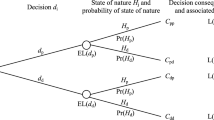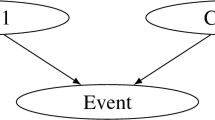Procedure deals with the machinery
by which legal controversies are settled
James B. Thayer
Abstract
The present article proceeds from the mainstream view that the conceptual framework underpinning adversarial systems of criminal adjudication, i.e. a mixture of common-sense philosophy and probabilistic analysis, is unsustainable. In order to provide fact-finders with an operable structure of justification, we need to turn to epistemology once again. The article proceeds in three parts. First, I examine the structural features of justification and how various theories have attempted to overcome Agrippa’s trilemma. Second, I put Inferential Contextualism to the test and show that a defeasible structure of justification allocating epistemic rights and duties to all participants of an inquiry manages to dissolve the problem of scepticism. Third, I show that our epistemic practice already embodies a contextualist mechanism. Our problem was not that our Standard of Proof is inoperable but that it was not adequately conceptualized. Contextualism provides the framework to articulate the abovementioned practice and to treat ‘reasonable doubts’ as a mechanism which we can now describe in detail. The seemingly insurmountable problem with our efforts to define the concept “reasonable doubts” was the fact that we have been conflating the surface features of this mechanism and its internal structure, i.e. the rules for its use.
Similar content being viewed by others
Notes
In re Winship 397 U.S. 358 (1970) (Harlan, J., concurring).
See Tehan v. U.S., 383 U.S. 406, at 416 (1966) where the U.S. Supreme Court states unequivocally that the “basic purpose of a trial is the determination of truth”.
See Scott v. Harris, 127 S. Ct. 1769, 1773 (2007).
Id. at 1775 (majority opinion); Cf. Id. at 1781 (Stevens, J., dissenting).
See e.g. State v. Dauphinee, 121 Pa. Super. 565, at 590 (1936).
Commonwealth v. Webster, 59 Mass. 295 (Mass. 1850).
Bourhill v. Young [1943] AC 92 (per Lord Wright).
References
Allen RA (1994) Factual ambiguity and a theory of evidence. Northwest Univ Law Rev 88:223–268
Allen RJ (1997) Rationality, algorithms and juridical proof: a preliminary inquiry. Int J Evid Proof 1:255–275
Allen RJ (2008) Explanationism all the way down. Episteme 5:320–328
Allen RJ, Leiter B (2001) Naturalized epistemology and the law of evidence. Va Law Rev 87:1527–1528
Amaya A (2015) The tapestry of reason. Hart Publishing, Oxford
Annis DA (1978) A contextualist theory of epistemic justification. Am Philos Q 15:213–219
Audi R (1998) Epistemology. Routledge, London
Baumann P (2005) Varieties of contextualism. Grazer Philos Stud 69:229–246
BonJour L (1988) The structure of empirical knowledge. Harvard University Press, Cambridge
Caruso EM et al (2009) Political partisanship influences perception of Biracial candidates’ skin tone. Proc Natl Acad Sci 106:20168–20173
Cherniak C (1984) Computational complexity and the universal acceptance of logic. J Philos 81:739–758
Cohen S (1987) Knowledge, context, and social standards. Synthese 73:3–26
Dennis I (2017) The law of evidence, 6th edn. Croydon Sweet & Maxwell, London
Duff A et al (2007) The trial on trial, vol 3. Oxford Hart Publishing, Oxford
Fogelin RJ (1994) Pyrrhonian reflections on knowledge and justification. Oxford University Press, Oxford
Hastie R, Pennington N (1986) Evidence evaluation in complex decision-making. J Pers Soc Psychol 51:242–258
Ho HL (2008) A philosophy of evidence law: Justice in the search for truth. Oxford University Press, Oxford
James Gleick C (1997) Making a new science. Vintage, New York
Kahan DM et al (2009) Whose eyes are you going to believe? Harv Law Rev 122:837–904
Kotsoglou K (2015) Forensische Erkenntnistheorie. Duncker Humblot, Berlin
Kuhn TS (1996) The structure of scientific revolutions, 3rd edn. The University of Chicago Press, Chicago
Lucy D (2006) Introduction to statistics for forensic scientists. Wiley, New York
Moyal-Sharrock D (2007) Understanding Wittgenstein´s on certainty. Palgrave Macmillan, Basingstoke
Neurath O (1959) Protocol sentences. In: Ayer AJ (ed) Logical positivism. The Free Press, New York
Newman JO (1993) Beyond “reasonable doubt”. N Y Univ Law Rev 68:979–1002
Redmayne M (1999) Standards of proof in civil litigation. Mod Law Rev 62:167–195
Redmayne M (2008) Exploring the proof paradoxes. Leg Theory 14:281–309
Roberts P (2007) Rethinking the law of evidence. In: Roberts P, Redmayne M (eds) Innovations in evidence and proof. Hart, Oxford
Roberts R (2011) Groundwork for a jurisprudence of criminal procedure. In: Duff A, Green SP (eds) Philosophical foundations of criminal law. Oxford University Press, Oxford, pp 379–408
Roberts P, Zuckerman A (2010) Criminal evidence, vol 2. Oxford University Press, Oxford
Robertson B, Vignaux GA (1993) Probability: the logic of the law. Oxford Journal of Legal Studies 13:457–478
Schlick M (1959) The foundation of knowledge. In: Ayer AJ (ed) Logical positivism. The Free Press, Glencoe
Sellars W (1963) Empiricism and the philosophy of mind. In: Sellars W (ed) Science, perception and reality. Routledge and Kegan Paul, London
Shapiro BJ (1991) Beyond reasonable doubt’ and ‘probable cause. Berkeley University of California Press, California
Stanley J (2004) On the linguistic basis for contextualism. Philos Stud 119:119–146
Striker G (2004) Historical reflections on classical pyrrhonism and neo-pyrrhonism. In: Sinnott-Armstrong W (ed) Pyrrhonian skepticism. Oxford University Press, Oxford
Stroll A (1994) Moore and Wittgenstein on certainty. Oxford University Press, Oxford
Thayer JB (1898) A preliminary treatise on evidence at the common law. Boston Little, Brown
Williams M (1995) Problems of knowledge. Oxford University Press, Oxford
Wittgenstein L (1969) On Certainty (edited by Anscombe/von Wright), transl. by Denis Paul and G.E.M. Anscombe. Basil Blackwell, Oxford
Acknowledgements
I would like to thank the two anonymous referees for helpful comments and suggestions. I am also grateful to audiences in Liverpool, London and Lausanne for instructive discussion.
Author information
Authors and Affiliations
Corresponding author
Additional information
Publisher's Note
Springer Nature remains neutral with regard to jurisdictional claims in published maps and institutional affiliations.
Rights and permissions
About this article
Cite this article
Kotsoglou, K.N. Proof beyond a context-relevant doubt. A structural analysis of the standard of proof in criminal adjudication. Artif Intell Law 28, 111–133 (2020). https://doi.org/10.1007/s10506-019-09248-x
Published:
Issue Date:
DOI: https://doi.org/10.1007/s10506-019-09248-x




